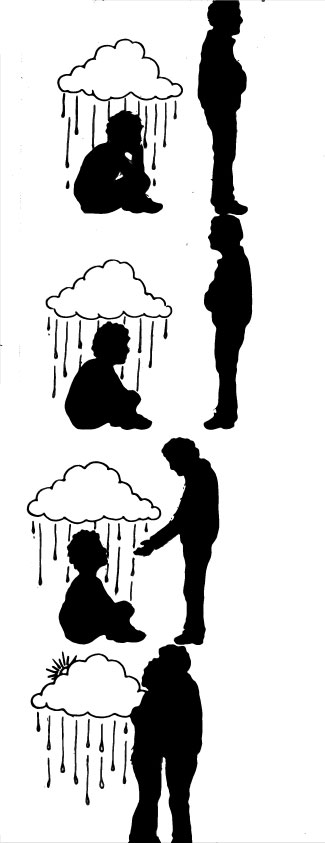
As Winston Churchill once said, “Never, never, never give up.”
This inner strength and indomitable spirit was evident in those present at the Los Angeles Out of Darkness Walk.
On Saturday, Oct. 17, the Greater Los Angeles Chapter of the American Foundation for Suicide Prevention (AFSP) held its annual Out of Darkness community walk in Santa Monica. The AFSP is a non-profit organization that aims to reduce suicide rates in the U.S. by 20 percent by 2025. On Saturday, over 800 people participated in the walk, from mental health professionals to business owners to volunteers.
One volunteer, who requested anonymity because of the delicacy of the topic, described it as an emotional day, but the kindness and community support shown by those in attendance was the reason she came out to the event. Many of the participants walking that day either experience mental health issues or are survivors of suicide loss. One walker spoke about how she lost her brother to suicide and that participating in the walk is one step in her healing process.
One of the common themes of the walk was solidarity. A participant explained that he came because of the community and as a “show of respect to those who have been lost to suicide.” The diverse array of people who came together to end the stigma surrounding suicide demonstrated that mental illness can affect anybody at any time.
Many in attendance were part of teams that had been fundraising and raising awareness for suicide prevention for the past few months. Their work will go on to support research and legislation to reduce suicide statistics nationwide. One of the main aims of the AFSP walks, which occur nationally both on college campuses and in communities, is to change the culture surrounding mental health conditions.
Pamphlets given out by AFSA at the event also shed light on some of the numbers behind mental illness: statistics show that “depression, bipolar, anxiety disorder and other mental health conditions will affect one in four of us during our lives, and yet too often these illnesses go untreated. In the United States alone someone attempts suicide every minute.” The walk was one step toward bringing these issues to light in order to prevent the loss of life.
The Out of Darkness Walk successfully encouraged the sharing of experiences and open discourse. Issues were brought to the forefront and people saw that they were not alone. As one person said, “I’ve lost someone to suicide but that does not mean the battle is over. We can do much to prevent it. The majority of what we can do is show empathy, love and kindness. Simply telling someone that they are loved, valued and important is a reason to not give up.”
In relation to our 5C community, it’s important that we create an environment that is conducive to open and honest discourse about these topics. In addition to speaking to counselors or professionals, safe spaces among our peers are necessary.
“I believe that the colleges can do much more to promote mental health,” Timothy Valdez CM ’19 said. “It can be a very intimidating and loud environment where not everyone is accommodated. Trigger words and insensitive language are constantly thrown around and this can be detrimental. The schools can try to inform students regarding sensitive issues by holding events and workshops promoting mental health.”
Changing campus culture surrounding such issues will take time and dedication. However, by bettering our campuses and raising awareness for mental health, we can take these steps towards a stronger, healthier consortium.

Facebook Comments